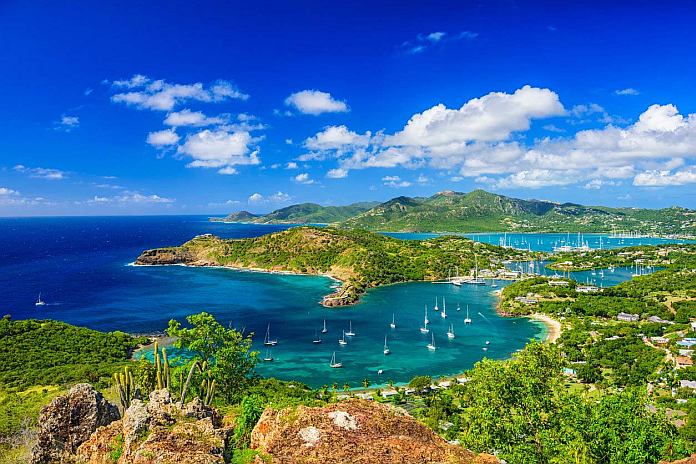By Caribbean News Global ![]()
ST JOHNS, Antigua – Caribbean nationals are attracted to the powerhouse of the Caribbean seeking a better way of life – social and economical – coupled with good governance; have resulted in the largest concentration of non-native residents in Antigua and Barbuda. However, COVID-19 warrants a further discussion on implementing new guidelines on immigration, tourism, and trade.
“One of the things we have to do is to control the number of people coming into the country as new immigrants, albeit, temporarily,” said prime minister Gaston Browne. “I know we have a large immigrant population, but we can’t have a situation where you have high unemployment and people coming in to burden the system,” he said.
“There is no formal ban on travel to the country…but we are appealing for those residents with family members overseas to inform them that we do not want any burdening of the system especially in light of the crisis forced upon us by the pandemic,” he stated. “When the country’s economic situation improves and there’s a need for additional workers, he will have no difficulty allowing more people in.”
“Right now, we are trying to allow the reopening of the domestic economy by May 15 – which will end the curfew,” moreover, “working out the modalities for the protocols – to accommodate some tourism business without having any spread of COVID-19 within the domestic community, is paramount,” the prime minister stressed.
While Antigua and Barbuda travel industry and the domestic economy is gradually reopened under new guidelines, other CARICOM Member States are scheduled to open their economy and tourism “onclave” between June 4 -15 respectively; albeit, air and maritime travel parameters in consultation with stakeholders are yet to make detailed recommendations, against the backdrop that CARICOM previously agreed that, “There would also be consideration of a proposal for a protocol on re-opening borders that all Member States would adhere to at the same time when such a decision is taken.”
While air-travel and cruise tourism has bottomed out, pending external factors, geographic considerations, healthcare and now ‘pandemic passports’ to safer countries, general manager of Global Ports Antigua Ltd., Donna Regis-Prosper said, “We have been in contact with our cruise partners (cruise lines) as well as the other ports that we manage around the world and the consensus is that where you are located in the world will determine how soon cruise ship calls will resume,” she explained. “Puerto Rico is a major hub and when that returns to full operations then cruises to St John’s will return in earnest.”
Meanwhile, The Guyana Tourism Authority (GTA) and the Tourism and Hospitality Association of Guyana (THAG) signed an agreement for the development of an industry database and the enhancement of training and capacity building initiatives for sector members, “the core objectives focus on increasing financial sustainability, strengthening the approach to training and capacity building and improving data collection and aggregation,” a release stated.
It is expected that for many small islands developing States, the COVID-19 pandemic will lead directly to record amounts of revenue losses without the alternative sources of foreign exchange revenues necessary to service external debt and pay for imports. Currently, the small island developing States would need about $5.5 billion to counteract the adverse effects of the pandemic on their economies, according to Pamela Coke-Hamilton, Director, Division on International Trade and Commodities, United Nations Conference on Trade and Development (UNCTAD). The Maldives stands out with a need of $1.2 billion due to its reliance on tourism revenues, followed by the Bahamas and Jamaica.
Full scale social and economic “normality” will not happen overnight absent a COVID-19 vaccine; “but there can be no going back to business as usual. We cannot continue to rush to fund panic but let preparedness go by the wayside,” director-general Ghebreyesus, World Health Organization (WHO).
But meanwhile, “social distancing is imperative now. Fiscal distancing is not,” Akinwumi Adesina president of the African Development Bank.





